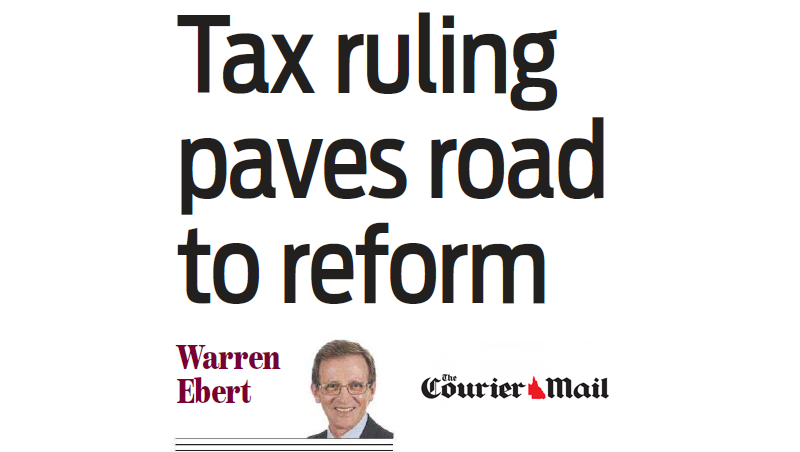Tax ruling paves road to reform – Warren Ebert
October 26, 2023
The High Court has made a landmark ruling which could have some extraordinary implications for Australia’s taxation system, and the real estate industry.
In a split 4-3 decision, the High Court ruled the Victorian government’s road user charge on electric and hybrid vehicles was a tax on the consumption of goods that fell within Section 90 of the Australian constitution, which bars states from imposing duties.
Under Section 90, states cannot impose a tax that is a duty of customs or excise.
That’s why states cannot impose their own GST or sales taxes, unlike the Commonwealth.
While the federal, state and territory governments examine the impact of this High Court ruling, as someone heavily involved in the property industry it has got me questioning what will be the future of stamp duty on real estate transactions and also land taxes?
When the GST was introduced by the Howard government, it was designed to phase out state and territory government taxes and levies such as stamp duty, with the revenue replaced by grants.
But 23 years later their budgets are still heavily reliant on revenue raised from the property sector such as stamp duty and land tax.
Stamp duty was introduced in NSW in 1865 as a handling fee to compensate for the government developing a system to protect the integrity of real estate ownership through an official stamp.
By 1923 it had become a valuable revenue stream which had been adopted by all six states.
Fast forward another 100 years and it is a cash cow generating around $35bn a year for state and territory governments.
But will this High Court decision mean that stamp duty and land taxes are illegal, and people will no longer have to pay these imposts?
State and territory governments need revenue to pay for the essential services they provide , but how this revenue is raised may need to change.
Since its inception, the GST has been a broad-based tax of 10 per cent on most, goods, services and other items sold or consumed in Australia.
But there have long been calls to increase the rate, which successive governments have been reluctant to follow up.
This High Court decision on electric vehicle charges could be the circuit breaker for much needed taxation law reforms in Australia.

